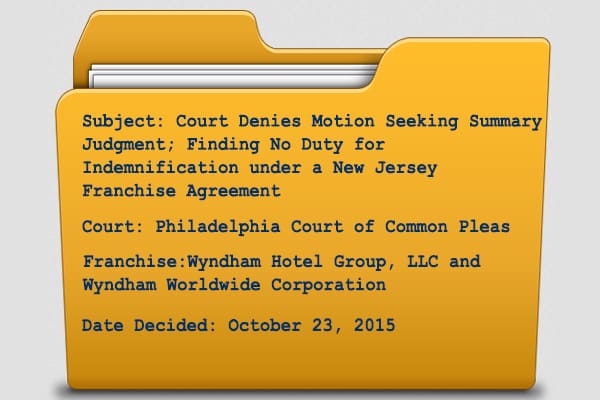 Franchisor contended that the Franchise Agreement “unequivocally” obligated the Franchisees to defend and indemnify, and pay all expenses which might be incurred by the Franchisor, related to the catastrophic injuries suffered by the plaintiff. Further, Franchisor argued that individual defendants had personally guaranteed to pay all amounts that the Franchisee might fail to pay.
Franchisor contended that the Franchise Agreement “unequivocally” obligated the Franchisees to defend and indemnify, and pay all expenses which might be incurred by the Franchisor, related to the catastrophic injuries suffered by the plaintiff. Further, Franchisor argued that individual defendants had personally guaranteed to pay all amounts that the Franchisee might fail to pay.
Is the Franchisor Entitled to Indemnification?
The crux of the initial issue was whether the Franchisor was entitled to indemnification where its active or passive negligence may have been a contributing factor in the plaintiff’s injuries.
Applying New Jersey law, as required by the agreement, the Court ruled that it was unable to conclude that the Franchise Agreement specifically, expressly and unequivocally provided indemnification to an indemnitee (Franchisor) against losses resulting from its own negligence. The Franchise Agreement must state unequivocally that the duty to indemnify exists even in instances where the Franchisor is negligent.
Concerning the Personal Guarantees…
Concerning the personal guarantees, the Court noted that under New Jersey law, guarantee agreements must be strictly construed and the language must be interpreted “most strongly” against the [Franchisor] at whose insistence such language was included. Further, the terms of a guarantee agreement must be read in light of commercial reality and in accordance with the reasonable expectations of persons in the business community involved in transactions of the type involved.
The guarantors presented an expert’s affidavit in their defense in which he addressed the reasonable expectations of persons in the hotel business community: “The guarantee signed by the [xxxx] is not interpreted in the industry as a personal guarantee to pay a verdict or settlement to a third party for personal injury.”
Franchisor’s Motion Denied
The Court accepted this affidavit as an accurate interpretation of the expectations of franchisees/guarantors in the hospitality industry, and hence, Franchisor’s motion was further denied.
Citation: Behrens v. Days Inn Hotel, 2015 Phila. Ct. Com. Pl. LEXIS 269
BE ADVISED that these comments are not intended as legal opinions and are not to be relied upon as legal advice. If you need legal advice, or a referral to a business
